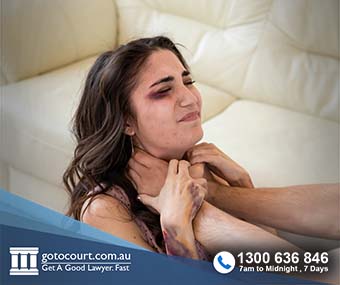Is Making Threats An Offence? (NSW)
Is Making Threats An Offence? (NSW)
In New South Wales, unlike some other states and territories, there is no specific offence of making a threat to kill. However, New South Wales legislation does contain some specific offences relating to threats made in particular ways, such as in a document or via a carriage service. It also contains provisions relating to making threats of specific types, such as threats to damage property.
Offences relating to making threats are serious offences and can attract significant terms of imprisonment.
Threats to harm
Section 61 of the Crimes Act 1900 provides that it is an offence to assault someone, even where no bodily harm is caused. This is known as common assault and is defined as the threatened application of force.
Courts have held that this offence extends to making threats to physically harm someone, even where the threat is made from such a distance that it would be impossible to immediately carry it out, provided the victim is made to feel fear.
Making threats via documents
Section 31 of the Crimes Act makes it an offence, punishable by a maximum of 10 years imprisonment, to intentionally or recklessly send or deliver a document threatening to kill or inflict serious bodily harm on any person.
This offence can be made out regardless of whether the document is actually delivered or received and regardless of whether the threat is actually communicated to the person it was intended for.
Making threats via a carriage service
Under Section 474.17 of the Commonwealth Criminal Code Act, it is an offence to use a carriage service to harass, menace or cause offence to a person. This includes the post, phone services and internet providers. An express or implied threat, delivered by post or internet, can amount to an offence under this section.
Stalking or intimidation
Section 13 of the Crimes (Domestic and Personal Violence) Act 2007 makes it an offence to stalk or intimidate a person with the intention of causing fear of physical or mental harm. This offence carries a maximum penalty of imprisonment for five years or a fine of 50 penalty units.
Making threats to property
Under Section 199 of the Crimes Act, it is an offence to threaten to destroy or damage property belonging to another person. Under this provision, it is also an offence to threaten to destroy or damage one’s own property in a way that is likely to endanger the life of another person or cause bodily injury to another person.
This offence carries a maximum penalty of imprisonment for seven years.
Making threats of hate-based violence
Section 93Z of the Crimes Act makes it an offence to publicly threaten or incite violence towards another person or a group of persons based on that person’s race, religion, sexual orientation, gender identity, intersex status or HIV/AIDS status.
This offence carries a maximum penalty of a fine of 100 penalty units or imprisonment for three years (for an individual) or a fine of 500 penalty units (for a corporation).
Violence includes personal violence and violence towards property.
Blackmail
Section 249K of the Crimes Act makes it an offence to blackmail a person.
Blackmail is defined as making an unwanted demand with menaces:
- With the intention of making a gain or causing a loss; or
- With the intention of influencing a public duty.
Menaces include making threats (express or implied) of detrimental or unpleasant action to another person and a general implied threat because the person making the demand holds a public office. A menace (threat) may be made without the use of words, but my implication or through gestures and body language.
A threat against an individual is only a menace if it would cause a person of normal stability and courage to act in response to the threat or if it would cause the particular individual to act unwillingly in response to the threat because of a particular vulnerability that the person making the threat knows about.
A person can be found guilty of blackmail even if the benefit was never actually obtained or the threat never actually carried out.
This offence carries a maximum penalty of imprisonment for 14 years.
If you require legal advice or representation in a criminal law matter or in any other legal matter please contact Go To Court Lawyers.

Affordable Lawyers
Our Go To Court Lawyers will assist you in all areas of law. We specialise in providing legal advice urgently – at the time when you need it most. If you need a lawyer right now, today, we can help you – no matter where you are in Australia.How It Works




1. You speak directly to a lawyer
When you call the Go To Court Legal Hotline, you will be connected directly to a lawyer, every time.

2. Get your legal situation assessed
We determine the best way forward in your legal matter, free of charge. If you want to go ahead and book a face-to-face appointment, we will connect you with a specialist in your local area.

3. We arrange everything as needed
If you want to go ahead and book a fact-to-face appointment, we will connect you with a specialist in your local area no matter where you are and even at very short notice.

























